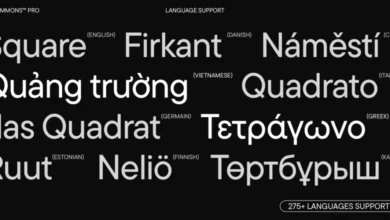Everything You Must Know About Canada GMAT
If you’re considering studying in Canada and aiming to pursue a graduate management program, then the GMAT (Graduate Management Admission Test) is a vital part of the admissions process.
nnnnWhether you’re a Canadian student planning to study in your home country or an international student dreaming of a world-class education in Canada, understanding the GMAT exam format and how it fits into your study plans is essential.
nnnnSo, let’s get started with the Introduction to Canada GMAT and dive deeper into the specifics of the GMAT exam format in Canada. That’s not all, we’ll show you how study in Canada consultants can be your valuable partners in this exciting academic endeavor. Let’s embark on this educational adventure together!
nnnnGMAT Exam Format
nnnnBefore starting preparation for the exam, aspirants must under the exam format well. The GMAT is a computer-adaptive test, which means the difficulty level of each question is determined by your response to previous questions.
nnnnIt consists of four main sections: Analytical Writing Assessment (AWA), Integrated Reasoning (IR), Quantitative Reasoning, and Verbal Reasoning. The AWA section assesses your critical thinking and communication skills, while the IR section tests your ability to analyze and interpret data from multiple sources. The Quantitative Reasoning section evaluates your mathematical proficiency, and the Verbal Reasoning section measures your English language skills. Familiarizing yourself with the structure and timing of each section is vital to manage your time effectively and perform at your best on the GMAT exam.
nnnnEligibility Criteria for Canada GMAT
nnnnBefore you begin preparing for the GMAT in Canada, it’s crucial to understand the eligibility criteria for taking the exam. There are a few essential points to consider:
nnnn- n
- Age Limit: There is no age limit for taking the GMAT exam. As long as you meet the other criteria, you can take the test at any age. nnnn
- Education Qualification: To be eligible for GMAT, you must have completed your undergraduate education or its equivalent. Most Canadian business schools require applicants to hold a bachelor’s degree from an accredited institution. nnnn
- Identification: You need to have valid identification documents to present on the exam day. A government-issued ID with a recent photograph is typically required for verification. nnnn
- Exam Frequency: You are allowed to take the GMAT exam once every 16 calendar days and up to five times in a rolling 12-month period. It’s essential to plan your exam dates strategically to allow ample time for preparation between attempts. nnnn
- Registration: Before scheduling your GMAT exam, you must create an account on the official GMAT website and register for the test. Be sure to double-check the available test centers and dates in Canada during your registration process. n
Preparing for GMAT
nnnn- n
- Explore Online GMAT Prep Resources n
Start GMAT preparation online by exploring reputable websites, forums, and blogs dedicated to GMAT study materials and strategies.
nnnn- n
- Reputable Websites: Visit trusted websites such as GMAT Club, Beat The GMAT, and Manhattan Prep to access a wide range of study materials, practice questions, and expert advice. nnnn
- Study Materials: Explore the study materials available online, including video lessons, strategy guides, and interactive quizzes. Make use of official GMAT guides and other recommended resources. nnnn
- Practice Questions: Engage in regular practice by solving a variety of GMAT practice questions available online. Focus on challenging yourself with questions of varying difficulty levels. nnnn
- Find the Right Online GMAT Course n
Consider enrolling in an online GMAT course to receive structured guidance and comprehensive study materials. Look for courses that offer interactive video lessons, practice exams, and personalized feedback. GMAT preparation online allows you to study at your own pace and fit your preparation into your busy schedule. Research and read reviews to find a course that aligns with your learning style and budget.
nnnn- n
- Structured Guidance: Look for an online GMAT course that provides structured guidance and a clear study plan. This ensures that you cover all the necessary topics and skills required for the exam. nnnn
- Comprehensive Study Materials: Choose a course that offers comprehensive study materials, including video lessons, interactive quizzes, and downloadable resources. These materials should cover all sections of the GMAT in depth. nnnn
- Create a Study Plan n
Developing a well-organized study plan is key to effective GMAT preparation. Set aside dedicated study time each day or week and create a schedule that covers all sections of the exam. Be consistent and realistic with your study goals, and remember to incorporate regular practice tests to track your progress and identify areas that need improvement.
nnnn- n
- Dedicated Study Time: Set aside dedicated study time each day or week, depending on your schedule. Consistency is key when preparing for the GMAT. nnnn
- Cover All Sections: Ensure that your study plan covers all sections of the GMAT – AWA, IR, Math, and Verbal. Allocate more time to sections where you need additional practice or improvement. nnnn
- Realistic Study Goals: Set realistic study goals that align with your target score and the time you have available for preparation. Break down your goals into smaller milestones for better tracking and motivation. nnnn
- Practice, Practice, Practice n
The saying “practice makes perfect” holds true for GMAT preparation. Solve as many practice questions and complete as many mock exams as possible. Online platforms offer a plethora of practice tests that mimic the GMAT experience. Analyze your performance, review incorrect answers, and identify patterns to fine-tune your approach.
nnnn- n
- Solving Practice Questions: Solve a wide range of practice questions that cover different topics and difficulty levels. This helps you reinforce your understanding of concepts and improve your problem-solving skills. nnnn
- Mock Exams: Take full-length mock exams that simulate the GMAT experience. This allows you to gauge your overall performance, identify time management strategies, and build test-taking endurance. n
Wrapping Up
nnnnSo, that’s all. We hope we’ve covered all the essential points. For study in Canada, consultants are essential to seek. However, remember that while the GMAT exam is a crucial component of the business school application process, it is not the sole factor for admission. Check out your preferable Canadian business school’s admission criteria, such as work experience, GPA, and statement of purpose.
nnnnBe sure to check the specific requirements of the institutions you’re interested in. By meeting these eligibility criteria, you can confidently proceed with your GMAT journey and achieve your dreams. Good luck.
n


